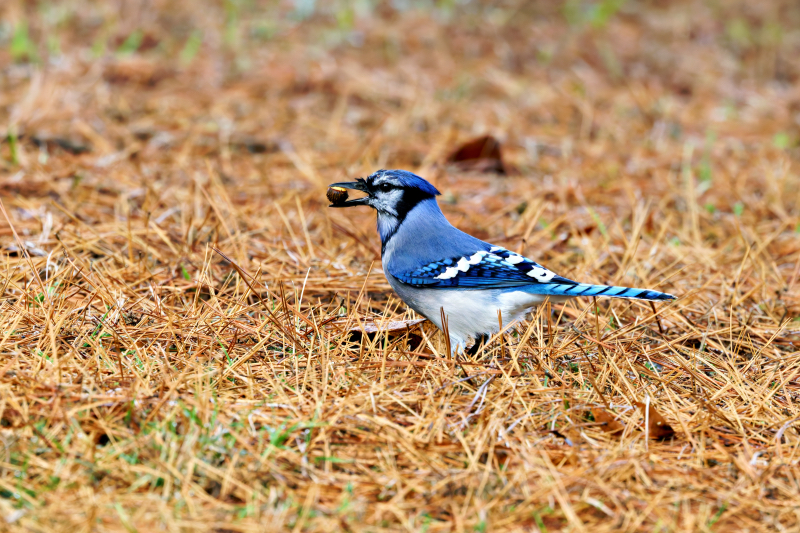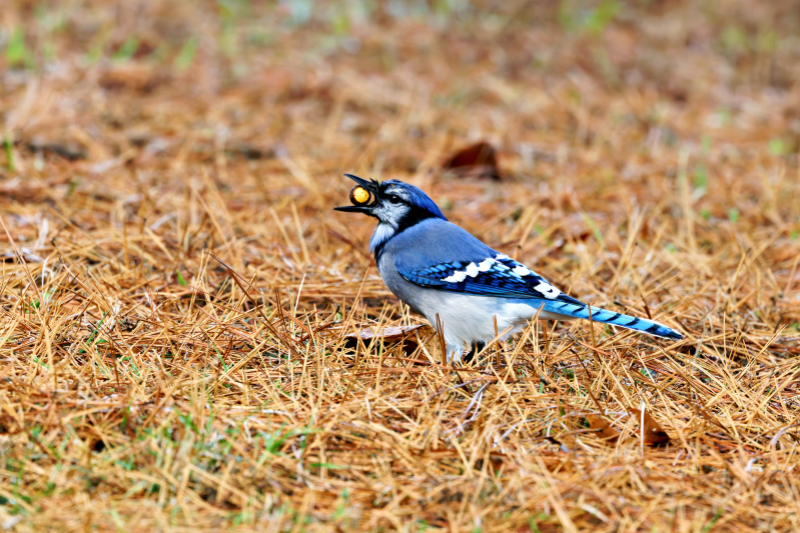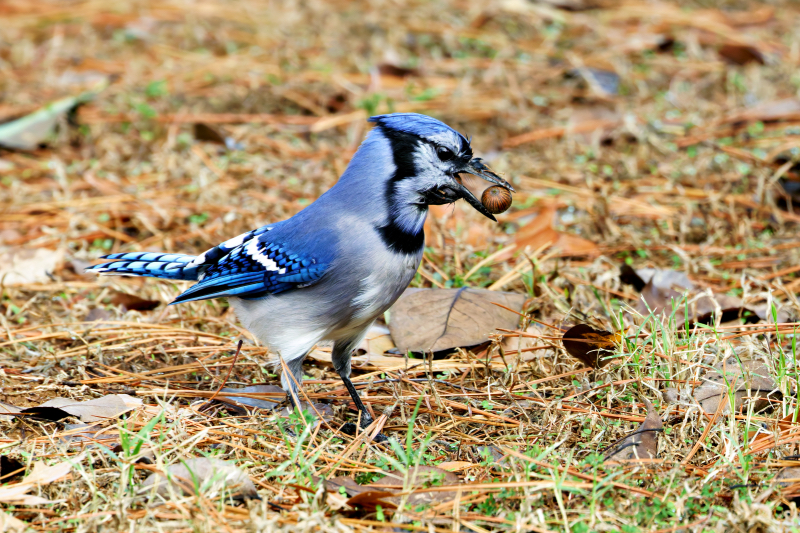A few days ago, I watched a Blue Jay in my yard doing something curious. It pecked at the ground, came up with an acorn, and swallowed it. Then, it moved through the yard, seemingly digging up acorns and relocating them. This got me thinking, was the Blue Jay stealing acorns from the Fox Squirrels that frequent my yard?
A Curious Blue Jay in My Yard


The Squirrels’ Stash and the Jay’s Strategy
Fox Squirrels are constant visitors here. They bury acorns all over the yard, making it a prime stash spot. On this day, the Blue Jay wasn’t just caching its own acorns, it appeared to be targeting acorns buried by the squirrels. I observed it covering the acorns with leaves instead of burying them in a hole. I’ve seen plenty of caching before, but this was different. It seemed almost strategic, and I couldn’t shake the idea that the Blue Jay might be exploiting the work of the squirrels.
What Science Says About Blue Jay Behavior
From what I’ve read, Blue Jays are known for their cleverness. They cache acorns to prepare for winter, often by covering them with leaves, not digging holes. But could they also be opportunists, swiping acorns that squirrels have hidden? Some studies suggest that Blue Jays don’t usually dig up squirrel-buried acorns. Yet, squirrels might eat acorns buried by Blue Jays if they happen to find them.
Could It Be an Acorn Heist?
But my recent observation made me wonder if there’s more overlap. Watching that Blue Jay carefully select and relocate acorns gave the impression of a cunning thief at work. Was it observing the squirrels earlier, noting where they were hiding their stash? Was it taking advantage of their hard labor?
Nature’s Opportunists at Work
Blue Jays are resourceful birds, capable of carrying multiple acorns at once. They can even transport them over long distances, up to 2.5 miles. This helps spread oak trees, but it also suggests they have a strong sense of where acorns are, whether they cached them or someone else did. There’s some documentation on Blue Jays stealing food from other animals, including squirrels, but it isn’t commonly observed.
Final Thoughts: The Backyard Acorn Rivalry
I find the idea of this interaction fascinating. If the Blue Jay was indeed swiping acorns from the squirrels, it reveals an adaptability that goes beyond simple caching. It shows how complex interactions in nature can be—one species taking advantage of another’s effort, all in the name of survival.

Related Post: Blue Jay’s Clever Cache
Readers can read more about Blue Jays caching acorns in my yard and see my photos by going to this post: Blue Jay’s Clever Cache: Observing Nature’s Little Hoarder
I’ll keep watching. Maybe next time, I’ll see a squirrel catch a Blue Jay in the act. For now, I’m left with the possibility that my yard might be the site of an ongoing acorn heist, a tug-of-war between birds and squirrels, each trying to outsmart the other.
So, the jay eats the acorn whole? Probably without the cap. Do they regurgitate any undigestible bits?
I’ve never thought about how they eat the acorn.
What about acorn woodpeckers…do they eat them whole?
Yes, Blue Jays swallow acorns whole.